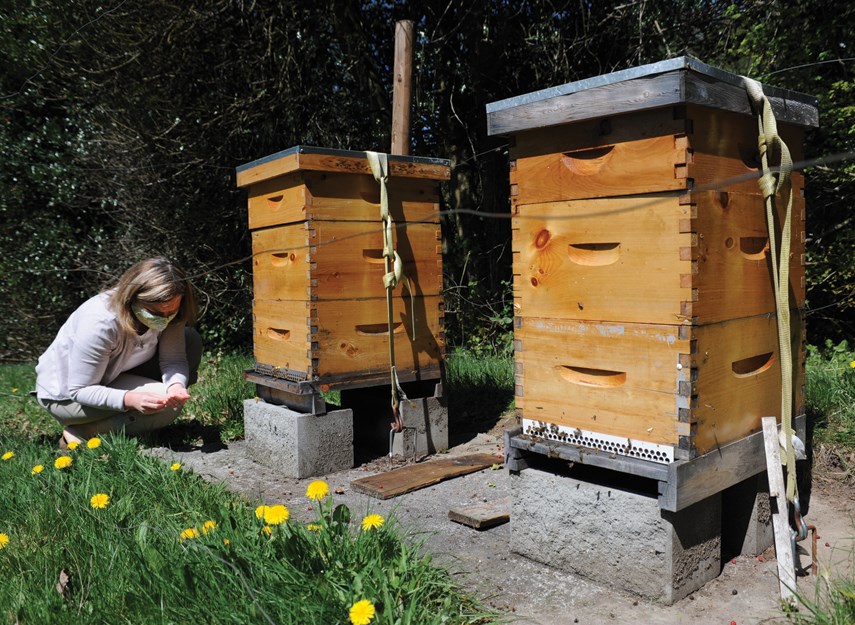A North Vancouver apiarist is urging gardeners and governments to lay off the toxic pesticides and herbicides after hundreds of her honeybees were poisoned.
Jitka Holt comes from a long line of Czech beekeepers, although the Upper Lonsdale resident got into the hobby herself just five years ago.
“The amount of joy and learning it has brought to the family and to the neighbourhood is unbelievable, and we have been met with an overwhelmingly positive response,” she said.
Honeybees are not native to North America, so for a colony to survive the winter, their hive must be carefully insulated and kept dry. Holt was overjoyed when she saw how well they weathered the cold months and have returned to work, foraging for nectar.
But then on Saturday, she was dismayed by what she saw in front of one of her hives.
“I found a pile - hundreds and hundreds of bees dead,” she said.
Upon close inspection, all the carcasses had their tongues sticking out – a sure sign of poisoning. Foraging bees have a radius of about three kilometres, meaning they could have been lured to their deaths by a garden anywhere between the Capilano River and Lynn Creek.
The most likely culprit is weed killers that contain chemicals called neonicotinoids, which are commonly sold in hardware stores but have been known to cause the total collapse of some colonies.
Pesticides and herbicides are federally regulated in Canada and there has been some discussion of phasing out the use of neonicotinoids for cosmetic purposes or outdoor use.
In 2017, the province estimated there were 2,300 beekeepers in B.C. operating roughly 47,000 colonies with as many as two billion bees. They contribute $470 million to the economy, mainly by pollinating outdoor and greenhouse crops.
But hobbyists and commercial hive owners alike have seen their populations plummet in recent years, said Maria Lancaster, a mentor to beekeepers across the North Shore.
Beekeepers can simply order in more honeybees to restart a colony but native bees, which do the heavy lifting in pollinating wild plants and commercial crops, are equally threatened, she added.
“Many countries in Europe and around the world already banned [neonicotinoids] years ago,” Lancaster said. “People are blinded loving their gardens loving their little patios and their flowers, but they need to consider the rest of the environment.”
Bees are highly pro-social and protective of the well-being of their community as a whole, which should probably be a lesson for the rest us while we await an outright ban, Holt said.
“I would like to appeal to the community and say, look, we're really dependent on one another, and helping the bees is really helping ourselves,” she said. “Let's help ourselves and the bees to survive together. I don't want to get angry at people. I think half the time people are just not aware of the consequences. But part of me wonders whether we don't have our priorities, right.
A picturesque but toxic garden is hardly a worthwhile tradeoff, she noted.
“Perfection does not equal survival. A manicured environment does not equal a healthy, renewable environment,” she said.



